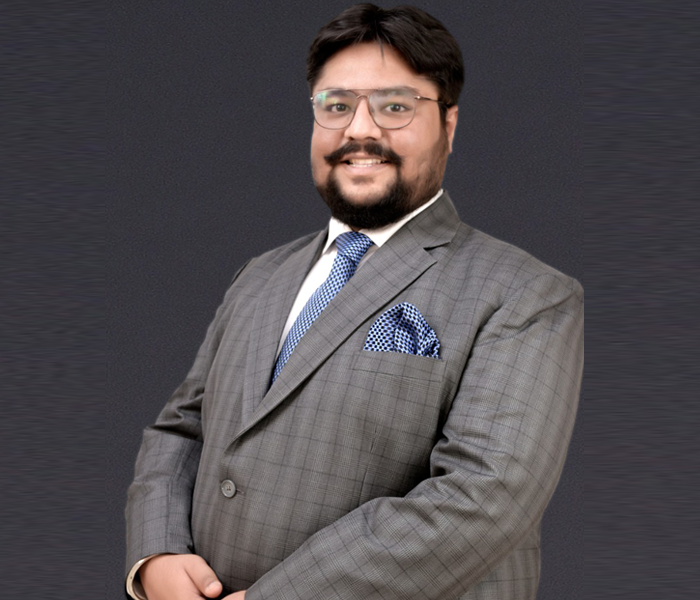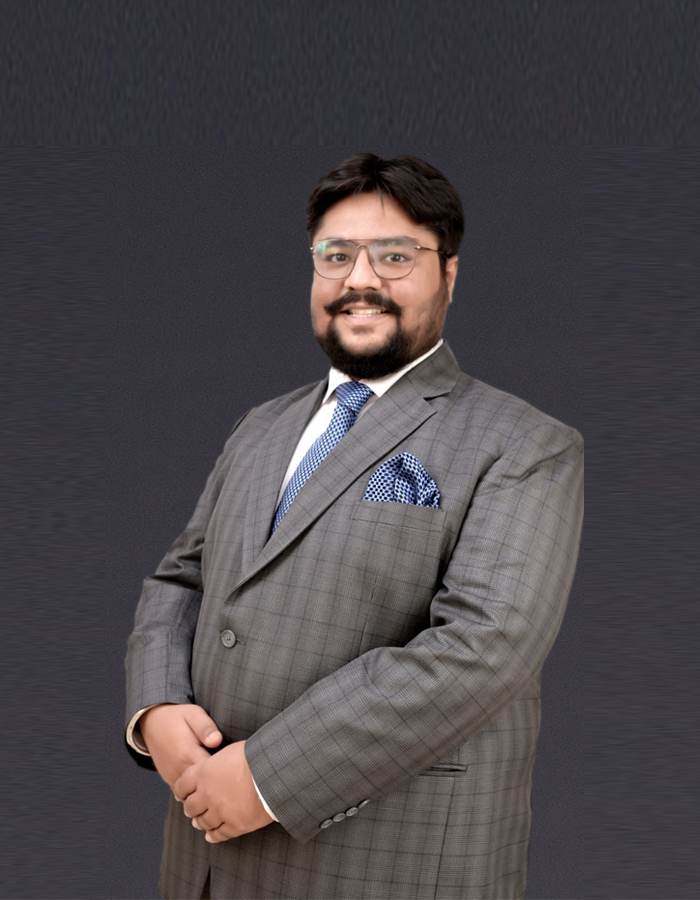This interview has been published by Priyanka Karwa and The SuperLawyer Team

To start this conversation, could you please tell us how did you end up in law, and what inspired you to focus on competition law?
Law was never planned. I was a science student who feared mathematics and was sure that medical was not in the mix because of many years of studies involved. That left a few choices — law still wasn’t an option. I come from Udaipur in Rajasthan, law wasn’t a popular choice in my city at that time, very few people knew about 5-year law course and existence of National Law universities. For me, law happened in the process of trying everything else that was left and during the preparation of entrances it looked interesting. Then I secured a spot at NLU Delhi as part of the first batch.
Competition law isn’t a mandatory subject in law schools. I developed some interest in the subject after I did a couple of moot court competitions on competition law. In my university at that time, moot court competitions were far more important than they should be, partly because as first batch we had limited things to do and limited guidance. These moot courts helped me secure some internships in the competition law teams of law firms and then I started enjoying it. Competition law is a very practical law and every new case or a proposition requires you to understand how that business works. This is immense learning and the other thing is that this law requires you to understand economics which is very interesting.
You’ve worked with several prestigious law firms in India, including Talwar Thakore & Associates, Shardul Amarchand Mangaldas & Co., and now AZB & Partners. How has your experience differed across these firms, and what have you learned from each of them?
I have been privileged to have worked with some of the best competition lawyers. It’s difficult to compartmentalize the learning because I have been at these places in different phases of my career.
I started my career with undivided Amarchand and continued at Shardul Amarchand. The team then wasn’t large and they were already doing some of the most important cases. The biggest learning for me in my formative years there was agility and pace that law firm practice demands. We used to do multiple diverse things in a day ranging from attending a court hearing, advising on commercial arrangements, preparing merger notifications for many days. Over the period, as the team grew, working with people of different approaches and styles helped developed adaptiveness which has always helped me.
TT&A competition team was small and doing quality work. My takeaway from this short stint was to develop strategic thinking. In some sense, this was shifting gears from being a pure executioner to a well-rounded lawyer who can be a trusted advisor to the clients.
By the time I joined AZB I had spent more than 5 years practicing competition law and had experienced two law firms. AZB has been a great platform in honing skills of client management, leadership and providing commercial solutions. AZB as a firm encourages growth in terms of even young people taking up challenging roles and be the front and center of top cases. Obviously, you develop these skills as you go along but there is genuine encouragement and effort in pushing people to take ownership. This continues to be a good thing for me.
The biggest learning common across the three places I have worked is to continue to keep the hunger to be better, to be part of leading cases, to be involved in policy shaping.
As a senior associate and now partner in the competition law team, you’ve worked on a variety of high-profile cases. Can you share some of the most challenging and interesting experiences and outcomes?
It may sound cliched but every case is challenging, interesting and high-profile for the client you are working for. I have been very fortunate to have worked on a number of precedent setting cases. Regardless of the outcome, I have personally enjoyed working on some enforcement cases in the natural resources sector and technological markets.
One of the most interesting cases that I had the opportunity work on was a case that defined the boundaries between competition law and sectoral regulators. There are areas between competition law and sectoral regulations that overlap and this interesting debate was settled by the constitutional courts. This was a great learning experience also because we had to deal with other areas of law and try to align them to the competition law.
This is the age of technology and there are many cases in this area that I am currently working on. Novelty of issues in the tech cases I have worked on pushed us to go the extra mile to bring forth the most lucid way of putting across a point. It is really enjoyable to do that extra research and acquaint yourself to the issues, the product and then the competition concerns. The area is new to the lawyers and the regulators and therefore challenging. However, the best part about technology related issues is that it is pragmatic, it relates to things happening around you, it feels like you are dealing with real life situations around you. The law is still developing in this field and it is a great opportunity to be part of development of law.
Merger control is a big part of competition law. Could you walk us through the process of advising clients on securing CCI’s clearance for mergers across various industry segments, including telecom, technology, defence, cinema exhibition, aviation, packaging, and shipping?
Merger control is a key part of competition law practice. Having narrowed down to practicing competition law, I couldn’t afford to confine myself to antitrust aspects only. Merger control may appear to be relatively straightforward but there are different kinds of challenges there.
There is a lot of creative structuring of transactions and that makes the aspect of notification itself interesting. There are a series of exemptions which leave some room for interpretation and application.
Then there is the actual notification part. You need to understand the business for making merger control filings with the CCI. There is a lot of interaction with the business teams while preparing the notification form to define market, to collect data and business specific information. In some complex merger control filings, there is a lot of economic analysis involved. The important thing about merger control is that it is forward looking so the regulator and the lawyers have to both be clear and careful at the same time when analysing a complex merger control case.
You’ve also advised clients on competition as well as litigation in cases involving complex intersection of competition laws and intellectual property rights. How do you navigate these complex legal issues, and what are some of the key challenges you’ve faced in these cases?
This is a very interesting intersection of two laws that aim to support innovation and consumer benefit. But on the face of it look contradictory. IP laws say that innovator should have exclusive right over its innovation and the competition law say that exclusivity is bad.
So, when we faced cases where people complained against IP holders alleging abuse of dominance, it raised really complex issues. Thankfully, there was some guidance from other mature jurisdictions who have seen these issues. But to contextualize them in Indian context before courts was a very interesting experience. Some of these cases are still live and it will be an interesting to see how the CCI and courts decide these issues.
You clerked under Justice V S Sirpurkar, Former Chairman, Competition Appellate Tribunal and Former Judge Supreme Court of India. How did this experience shape your understanding of competition law and your approach to legal work?
This was my last internship in the University. I had done 2-3 internships in competition law before this but undoubtedly, the clerkship at the COMPAT was most rewarding for multiple reasons. Learning the subject, preparing for cases and just general work ethic. I learnt a lot from the close association with Justice Sirpurkar.
Had the good fortune of seeing some of the most important cases on competition law argued when I was assisting Justice Sirpurkar. In some sense it was my real exposure to the law. Because you could see all kinds of cases and all kinds of lawyers argue cases, I also closely saw the preparation that goes in preparing for a matter. Had a first-hand experience of seeing the difference between a manageable day, a good day and a great day in the court. Judges by definition are keen observers and a good preparation sets the case apart.
Justice Sirpurkar is a generalist judge so he used to put in extra effort in understanding and studying the law. Consequently, I needed to study, discuss and analyse the legal issues with him regularly. That period was more of a practical education than of first brush with working in competition law for me.
What are some of the most exciting developments in competition law right now, and how do you see the field evolving in the next few years?
As I said earlier, this subject is extremely pragmatic and relatable so it is not going out of fashion anytime soon. On a lighter note, businesses as they grow big, they will do things to remain there and cartels date back to the beginning of the civilization so I don’t see that stopping anytime.
What changes about the law is applicability to the things that are happening around you. Today the buzz in the town is big-tech and their conduct. There is an ongoing debate across the globe on whether the existing tools on competition law are sufficient to address the so-called new age problems around big-tech. In India, we have had our own share of play with big-tech some cases are decided others are under investigation. Policy level changes to have dedicated laws around regulating are being discussed and there is likely to be experimentation around that. So interesting times ahead and happy to be part of this.
What do you like to do when you’re not practicing law? Any hobbies or interests that you’d like to share with our viewers?
I listen to music and constantly try to revive my dying habit of non-law reading. Watching fiction takes most of my time reserved for hobbies and am trying to change that. If I could give one advise to lawyers just joining the profession, it will be that make that extra effort in keeping your hobbies alive, take time out to follow them. It is important to have them otherwise this profession can suck you into it without you even realizing it.
Finally, what advice would you give to law students and young lawyers who are interested in pursuing a career in competition law, and what qualities do you think are essential for success in this field?
That is a simple answer for me. Professional competence is important but it is just the bare minimum. You need to have an inquisitive mind and be practical in your approach. Try to step into the shoes of the client who needs to run a business and is seeking advice from you. These qualities are needed across the board for doing well in any stream of law.
























